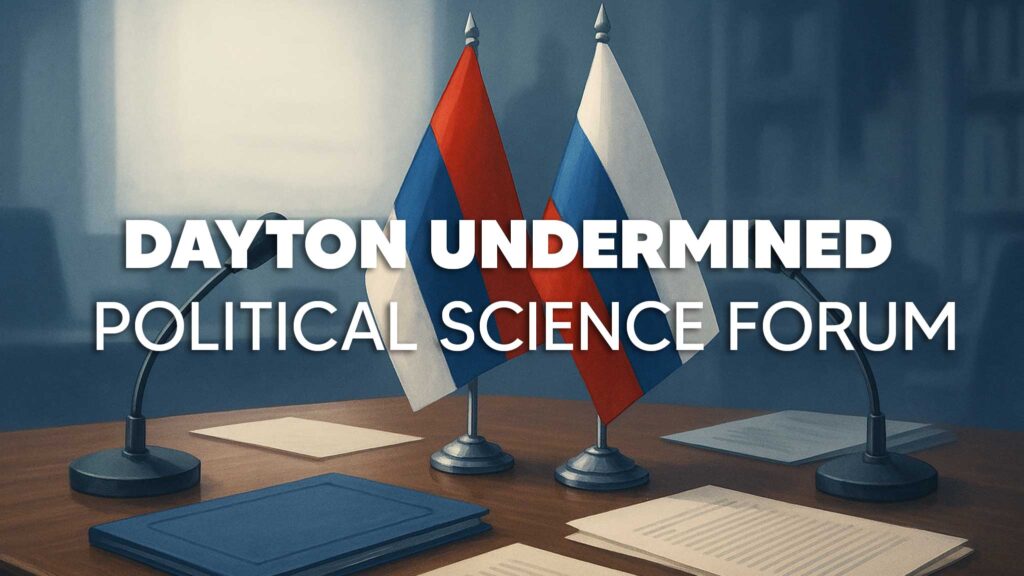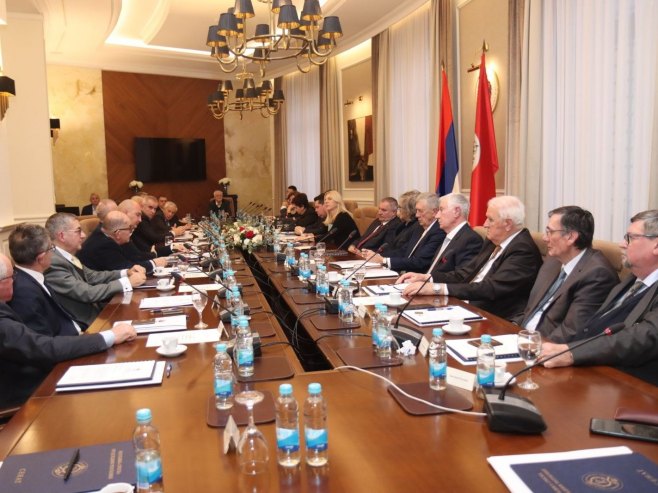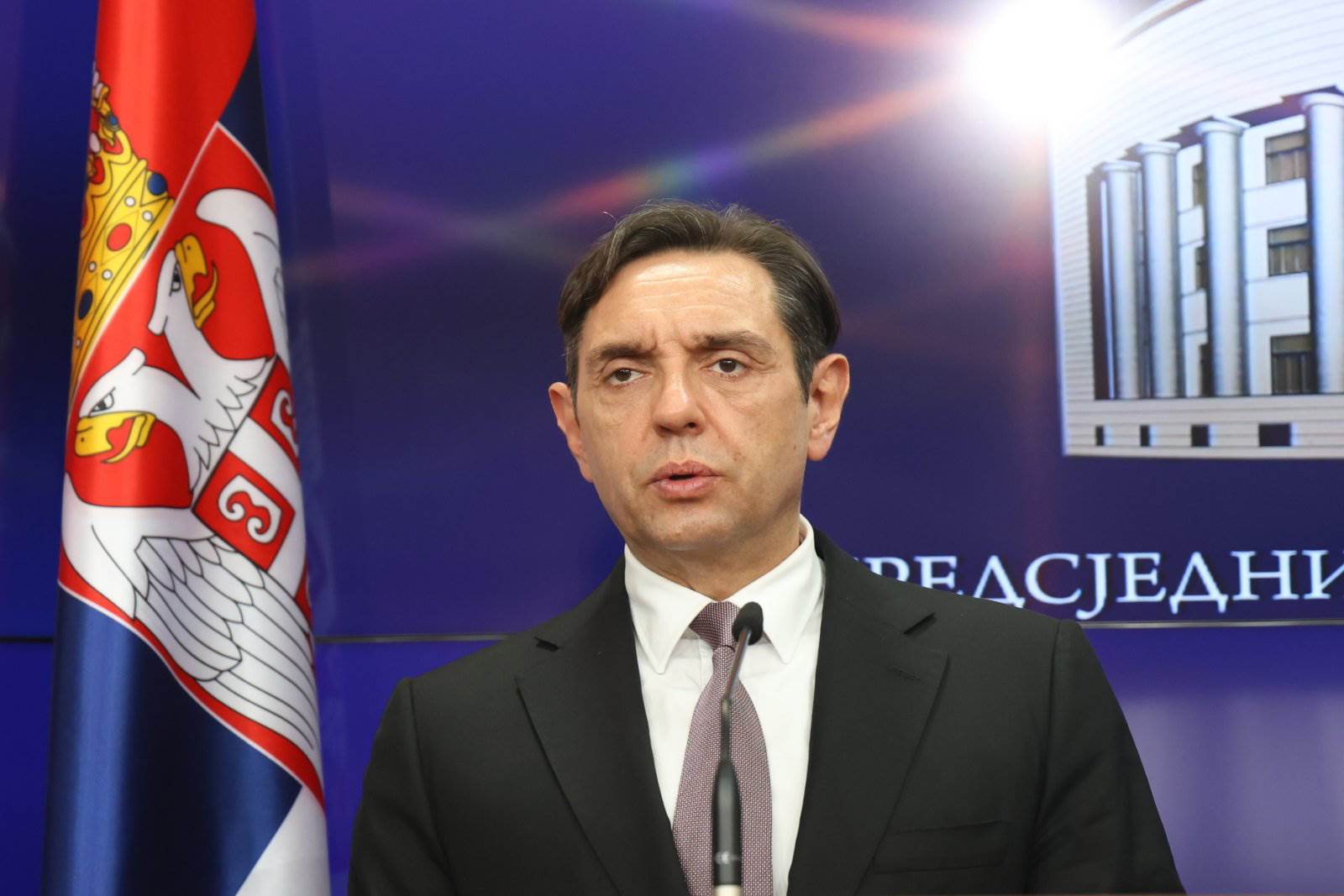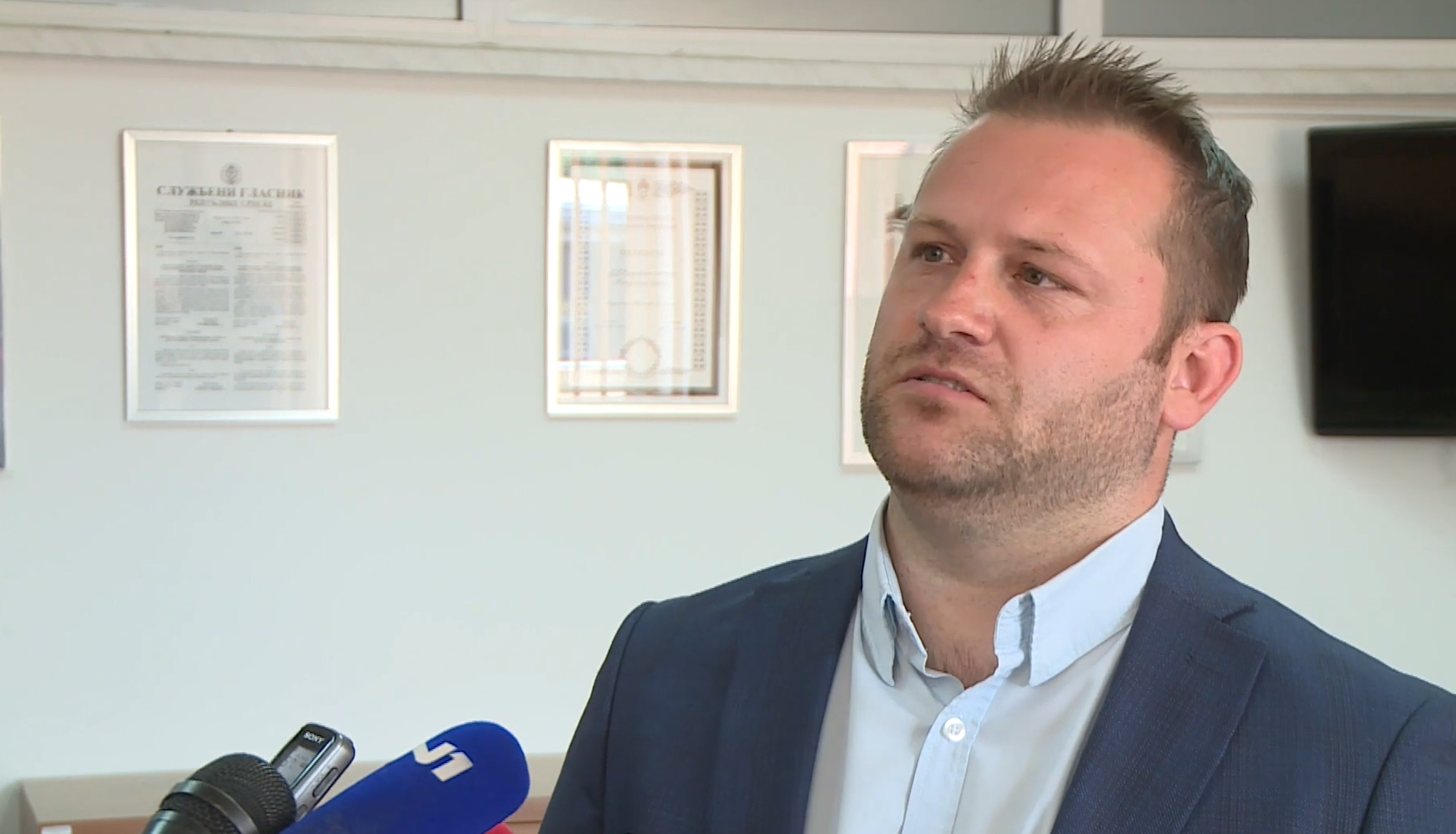An international political science conference marking 30 years since the signing of the Dayton Peace Agreement was formally opened in Banjaluka.
The Minister of Internal Affairs of Republika Srpska, Željko Budimir, stated that the Dayton Agreement has been significantly undermined and that the current situation in Bosnia and Herzegovina does not reflect what was signed three decades ago.
Budimir emphasized the importance of the analysis presented by Russian scholars in Banjaluka, which examines developments in Bosnia and Herzegovina over the past thirty years.
“This is significant because it shows how Dayton has been interpreted from its signing until today — and how it is understood by the Russians, who were actively involved in achieving the agreement,” Budimir said.
He reminded that Russia is one of the guarantors of the Dayton Agreement — one of the great powers actively engaged in defending and ensuring its consistent implementation.
“We can see how much the Dayton Agreement has been violated and what remains of it today. Russia continues to defend and analyze this document as an important international act within the UN Security Council,” Budimir noted.
Dean of the Faculty of Political Sciences at the University of Banjaluka, Ranka Perić Romić, expressed confidence that the international political science conference marking the 30th anniversary of the Dayton Peace Agreement would demonstrate that foreign interventionism remains the key obstacle to maintaining normal relations in Bosnia and Herzegovina.
She stressed that Republika Srpska is a factor of stability in the country and that the greatest disruptive influence on the preservation and implementation of the Dayton Agreement comes from the Office of the High Representative and all those interfering in Bosnia and Herzegovina’s internal affairs.
“The Dayton Agreement ensured peace, stability, prosperity, and economic development — both for Republika Srpska and the Federation of Bosnia and Herzegovina. Everything that has happened in the past 30 years is the result of those who illegally and illegitimately interfere in Bosnia and Herzegovina’s internal matters,” said Perić Romić.
She pointed out that the conference features extensive academic research on the development of post-Dayton Bosnia and Herzegovina, emphasizing its importance as it was conducted by Russia — a country not directly involved in Bosnia’s internal affairs and therefore capable of providing the most objective assessment.
“Every piece of research carries weight if its findings can be applied to future political processes. When a topic is analyzed from a scientific perspective and those results are presented to political actors, they can use them to shape their future decisions,” she explained.
Vice-dean for research and international cooperation at the Faculty of Political Sciences in Banjaluka, Vlade Simović, said that the conference would present a comprehensive study conducted by Russian researchers and professors, examining Bosnia and Herzegovina’s society from multiple angles, 30 years after Dayton.
He added that the Faculty has long maintained cooperation with Russian universities and research institutions.
“To date, we have signed six cooperation agreements, and this project represents a further deepening of scientific and educational collaboration,” said Simović.
Advisor at the Office of the Embassy of the Russian Federation in Bosnia and Herzegovina, Yuriy Pichugin, stated that the era of neocolonial practices in Bosnia and Herzegovina must come to an end and that dialogue should be left to the constituent peoples without external interference.
“The main destabilizing factor is the illegitimate high representative, who is now introducing numerous reforms into the constitutional framework of Bosnia and Herzegovina. As you could see in the UN Security Council, we firmly support Republika Srpska’s efforts to preserve the constitutional framework of the Dayton Peace Agreement and to protect the constitutional rights of all constituent peoples and both entities,” Pichugin said.
Speaking to reporters in Banjaluka before the conference, Pichugin noted that over the past three decades, the dialogue among Bosnia’s constituent peoples has been negatively affected by the actions of Western countries.
“The Dayton Agreement established mechanisms to safeguard and maintain the balance of interests among all three constituent peoples and two entities. That balance was carefully designed and cannot be altered through external interference,” he emphasized.
Yekaterina Entina, Director of the Center for Mediterranean Studies at the Higher School of Economics and advisor to the Gorchakov Foundation, explained that the research covered several areas, including a sociological survey conducted online and through interviews with representatives of Bosnia’s three ethnic groups.
“The results clearly showed a deep division, but contrary to what the West and NGOs claim, there is no strong hatred. Economic integration has also failed to occur due to constant external interference, which limits investment and readiness for mutual cooperation,” Entina said.
She also addressed the cultural dimension, noting that out of 50 films produced over the past 30 years, only two or three did not portray Serbs as major villains.
“It is important to present these findings to the wider public to understand the kind of cultural narrative being created in this country. As researchers, we agree with our government’s position that the Office of the High Representative has become a destabilizing factor, causing greater disintegration now than 20 years ago,” she said.
Entina added that an analysis of the decisions made by previous high representatives shows that Serbs in Bosnia and Herzegovina have been the most affected by their actions.
The conference, held at the Faculty of Political Sciences in Banjaluka, gathered prominent experts from Republika Srpska and Russia. It was organized by the Faculty of Political Sciences of the University of Banjaluka in cooperation with the Gorchakov Public Diplomacy Support Foundation, operating within the Ministry of Foreign Affairs of the Russian Federation.
Source: RTRS









